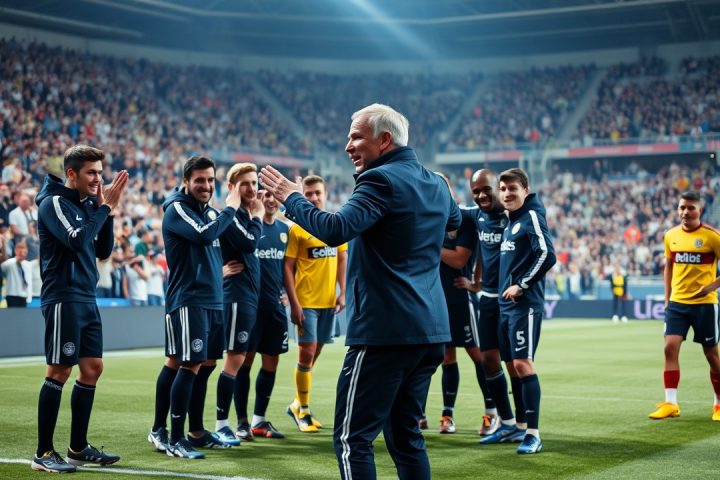The Emotional Weight of Football
In a striking display of vulnerability, a recent Champions League final showcased the emotional weight of football, particularly on one Inter Milan fan who captured the attention of millions as tears streamed down his face during a corner kick in the 76th minute. His expression of anguish resonated globally, especially after Paris Saint-Germain’s fourth goal sealed the match, leaving supporters like him grappling with heartbreak. This poignant scene underscores a deeper narrative about the psychological ties individuals form with football – a game that can simultaneously elevate spirits and evoke profound sorrow.
The Role of Football in Emotional Expression
“Football is much more than just a sport; it serves as a refuge from the stresses of life,” says Sally Baker, a professional therapist.
In this arena, men feel a rare freedom to express their emotions openly, whether that involves tears of joy or despair, without fear of societal judgment. The environment of football creates a unique bond among fans, allowing them to vent and share their feelings in ways that wouldn’t be accepted elsewhere.
Personal Struggles and Collective Joy
This emotional connection extends beyond fanfare to the personal struggles of those involved in the sport. PSG’s assistant coach, Rafel Pol Cabanellas, was visibly moved in the final minutes of the championship, reflecting the profound effect football can have on the psyche. Cabanellas had lost his wife the previous November and his tears added a layer of poignancy to the match.
Another moving instance occurred during the FA Cup final at Wembley. Brazilian journalist Joao Castelo-Branco left the press area to film scenes of jubilation following Crystal Palace’s historic victory over Manchester City, completing a 164-year wait for a major trophy. The footage depicted fans overwhelmed with emotions ranging from elation to disbelief, encapsulating the essence of football as a deeply human experience.
Changing Attitudes Towards Emotional Expression
The visuals revealed men and women of different generations, some embracing while others were caught in quiet moments of reflection. For many, the emotion is not a recent development but represents a cultural shift concerning emotional expression, particularly among men. Baker notes that changes in societal attitudes towards mental health have paved the way for men to explore and convey a fuller spectrum of feelings, diminishing the stigma previously associated with expressing vulnerability.
For fans like Gary Pickles, witnessing his adult son cry during Manchester City’s triumphant moments highlights how expressions of grief or joy in response to football have evolved over the years. Reflecting on the emotional exchanges witnessed at recent matches, he recalls how this shift has been influenced by societal changes, especially in light of discussions around mental health intensified by the pandemic.
The Cathartic Nature of Football
This theme of emotional vulnerability isn’t just reserved for grand occasions. Often, the mere act of supporting a club can elicit tears, as shown in a nostalgic 1989 moment at Anfield or a heart-wrenching recollection from 2004 when a young Leeds United fan was captured sobbing amid his team’s relegation crisis.
As fans relive these emotional encounters in their minds, stories like that of Kevin Day, who shared in the euphoric release of emotion post-Crystal Palace’s victory, illustrate that football is not solely about the game. It’s also about remembering loved ones lost, the unfulfilled dreams of past generations, and the collective experience of finally achieving what may have seemed impossible. Day reflects on this unity:
“On that Saturday evening, everyone I spoke to felt the absence of someone they wished to share this moment with, illustrating how the beautiful game intertwines with our personal histories.”
The cathartic nature of football and the gradual acceptance of emotional expression signify a crucial development within the sport’s culture. As attitudes continue to shift, it seems that the game will forever remain a profound and emotional outlet for those who invest their hearts and souls into supporting their teams, reflecting the complex interplay between sport, identity, and the human experience.




